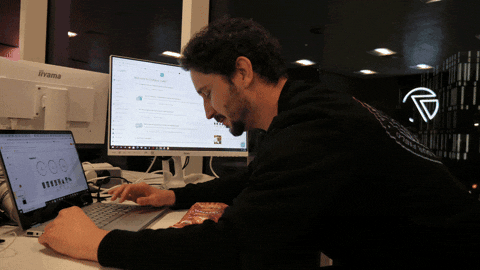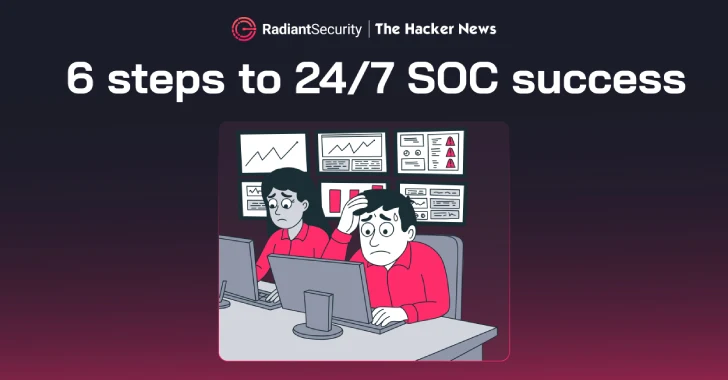Developers like to engage in an unhealthy cycle of overworking, burning out, yet persisting until we eventually break down.
Oh, just take some time off, and you’ll feel better.
I wish it were as easy as taking a week break from coding. But taking a short breath of air before lounging back into the deep end only changes nothing.
Developers’ burnout can make you rethink your career. Then, loathe what you were once passionate about, and sadly, almost end your career. I was at the 3rd stage until I stumbled upon a picture I took years ago when I was a junior developer. I saw my old self. I saw that excitement and passion in my eyes.
It had an Aha moment: I realized that I never stopped loving my job. I just needed to discover why burnout was stopping me from loving it.
How can we solve this problem? By knowing its cause and learning the cheat code to work sustainably. Thankfully, the answers are all in this read. Let’s journey together.
All The Warning Signs Has Always Been There
No one really looks forward to Mondays during the weekend. However, what you and I felt on that weekend was something different. Dread. That weekend passed in a blur and that Monday morning came.
Surprisingly, the excitement that came with opening the laptop was gone. Vanished into thin air.
How did we get here?
- The physical signs
Well, burnout doesn’t just sneak up on people overnight. You just didn’t spot the silent productivity killer in time. It all starts with the constant tiredness. You dismissed it despite “grinding all night” twice in a week, every week.
Then, there’s that feeling of exhaustion that’s never cured with cups of coffee and energy drinks. Yet, you ignored the red flags. You kept hoping your willpower would keep you afloat.
Little did you know that your brain was hitting cognitive fatigue. It was at that moment the work signs started to creep in.
- The work signs
You thought your middle name was Cyborg?
A 20 minutes of coding suddenly started taking an hour to get done? That was the rude awakening that you didn’t see coming. In no time, your output dropped, and you started missing obvious errors.
Still, you couldn’t read the signs on the wall. Until frustration starts to set in. Guess what? You are still oblivious to the real issue. You believe that you are the problem. Sadly, you don’t realize that the machine isn’t broken; it’s overheating.
That Monday morning came, you woke up, and programming felt like a chore. You weren’t fulfilled by the ability to write clean code anymore. You just wanted the day to be over and done with. This crash corroborates the
It’s time to completely change how we work as software developers.
Just like you, I was ready for some change. So, I took the first step on my journey to working sustainably. The first step was to discover why I was burning out. Amidst my quest to change my life, I discovered something. I found out that I and my fellow developers were also experiencing burnout. But, what was shocking was how our whys were almost similar.
Having gleaned from them, I’ll be discussing the major reasons why software developers burn out. Be rest assured that I’ll chip in workable solutions that you would find helpful.
Why Most Software Developers Burn Out
- Zero workday boundaries
The line between work and personal life in the tech community today is almost invisible. Today, tech companies have done a fantastic job of making being “always available” a badge of honour. Many software developers hop on a call by 11pm to quickly fix a bug.
Of course no job description would state that you have to work 24/7, but in reality, it’s different. You actually might spend almost all your day working on tasks. It’s tiring and you loathe it. You want to draw a firm boundary, but don’t want to risk not looking like a team player. And let’s not start with how some tech companies try to sugarcoat it as being “flexible.”
My 2 Cents:
It all starts with you. Do your due diligence with writing and deploying your code. A clean code means no bugs to fix. Be meticulous so that you won’t sacrifice your rest time to correct work errors. If you still get called to meetings outside work hours, you need to create boundaries. It’s high time you set non-negotiable work hours and work communication clearly.
Proceed to use your device Do-Not-Disturb feature and status updates to signal that you are offline. If late-night call requests creep in, do well to professionally decline. If it’s necessary, at most, offer a response time that aligns with your boundaries.
- Doubling your workload
Imposter syndrome has nothing on you. You know that you are a smart software developer that can do anything you set your mind to. However, that shouldn’t be the go sign to take on a lot of projects. On another hand, there are a number of reasons developers take on a lot of tasks at once. It could be because there’s a debt or family need that requires being sorted. Or, you want to prove yourself at work for a promotion.
Sometimes, taking on more workload might look like learning new languages and frameworks to upgrade one’s game. These workloads might not be optional, but crucial to career survival. However, at the same time, overworking oneself can lead to breakdown. And breakdown cuts down productivity, creativity, and decision-making.
How does one solve this dilemma?
My 2 Cents:
Working hard shouldn’t come at the cost of your wellbeing. Even if it’s necessary to take on a lot of work at the moment, learn to work smart. If you are working in a team, delegate tasks. If you are working solo, consider outsourcing. Also, listen to your body whenever it signals tiredness. Take rest, eat well, drink water, and take a walk.
- Setting Unrealistic Deadlines
Project timelines are way too optimistic. Everyone believes it would all go smoothly. ‘’Oh, we’ll get this done in no time.” Sike! It’s 3 days to the deadline and you haven’t even gotten to the hardest part.
It’s simple – set realistic deadlines. When estimating the delivery timeline, double your initial guess. Always factor in a buffer period. That extra time would cater to unexpected bugs, mental fatigue, and any roadblock. Also, don’t promise a deadline you can’t fulfil. It’s better to request for extra time upfront than to disappoint with a failed promise.
Final Thoughts
Burnout is not a sign of personal failure. Burnout is not a sign of weakness, neither is it about lacking passion or discipline. It’s not something that can be fixed by a vacation or by gaming all day, week-long.
Burnout means there’s a broken system somewhere. And you must identify the source to fix the problem. You must fix it because you are first human before anything else. And that’s more important than any line of code you can ever write.












